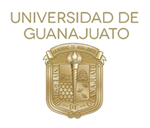 Guanajuato, Gto., December 29, 2015.- The master degree student in Chemical Sciences, José de Jesús Monjaraz Vallejo from the University of Guanajuato, generates an international quality biofuel and also has an ecologic recommendation.
Guanajuato, Gto., December 29, 2015.- The master degree student in Chemical Sciences, José de Jesús Monjaraz Vallejo from the University of Guanajuato, generates an international quality biofuel and also has an ecologic recommendation.
Such fuel covers the international norms from ASTM International and the European norms.
The fuel was created through a multidisciplinary work between the Department of Chemistry from the Division of Natural and Exact Sciences and the Department of Civil Engineering from the Division of Engineering both from Campus Guanajuato.
The title of the project is "Obtención de ferrita de cobalto para su aplicación como catalizador en la optimización de las reacciones de esterificación y transes tarificación de ácidos grasos para el proceso de producción del biodiesel" (Obtaining of cobalt ferrite for its application as a catalyst in optimizing the esterification reactions and transesterification of fatty acids for biodiesel's production process).
Thanks to the participation of the Research Summers at UG, the enthusiasm from Jesús Monjaraz born to work in a new biofuel and seek a catalyst to contribute something innovative, that not only bring benefit for the research group but for the whole world. "I always thought that you have to give back something to the world", mentioned Jesús Monjaraz.
The biodiesel produced in the laboratories from the University of Guanajuato, is biodegradable and in can displace the traditional fuels that pollute the environment.
Creating this biodiesel uses a new catalyst –which is a compound that accelerates the chemical reaction— and can substitute other products that cause environmental problems, besides having a much better quality from what has been obtained from the traditional processes and its production cost is much less.
The process and its advantages:
- The new catalyst eliminates stages in the process.
- The conventional production time takes 24hrs, while with the new catalyst generated at UG is done in 2 hours.
- It does not use water, when a liter of biodiesel is produced conventionally it uses 3 liters of water while with this new catalyst, uses none.
- Allows handling oils that are not highly refined, which is better for the industry.
The advantages and the innovating process from Jesús Monjaraz, allowed that the project landed in patent request which is supported by the Environment's Link Center (VEN for its acronym in Spanish).
This project was advised by the PE Coordinator from Environmental Engineering from the Department of Civil Engineering from the Division of Engineering from the University of Guanajuato, Dr. Norma Leticia Gutierrez Ortega and the responsible of the Consolidated Academic Body (CAC for its acronym in Spanish) of "Preparación, Procesamiento y Caracterización de Materiales Catalíticos y Cerámicos", ascribed to the Department of Chemistry from the Division of Natural and Exact Sciences, Campus Guanajuato, Dr. Esthela Ramos Ramírez.
Currently, this fuel is already produced industrially in other countries like Germany, Brazil, US –with the disadvantage that it is elaborated with a different technique to the one developed by the UG student— since it uses a highly pollutant and expensive catalyst and generates a lot of waste diffluent in the biodiesel's production. This makes it more expensive besides it uses a lot of water, with three treatment stages in the unit pressures level, that deteriorate the soil, residual water, etc.
A fuel such as the biodiesel has different applications, the regulating norms specifically talk of internal combustion motors in cars, electric generator and lawn mowing machines.


